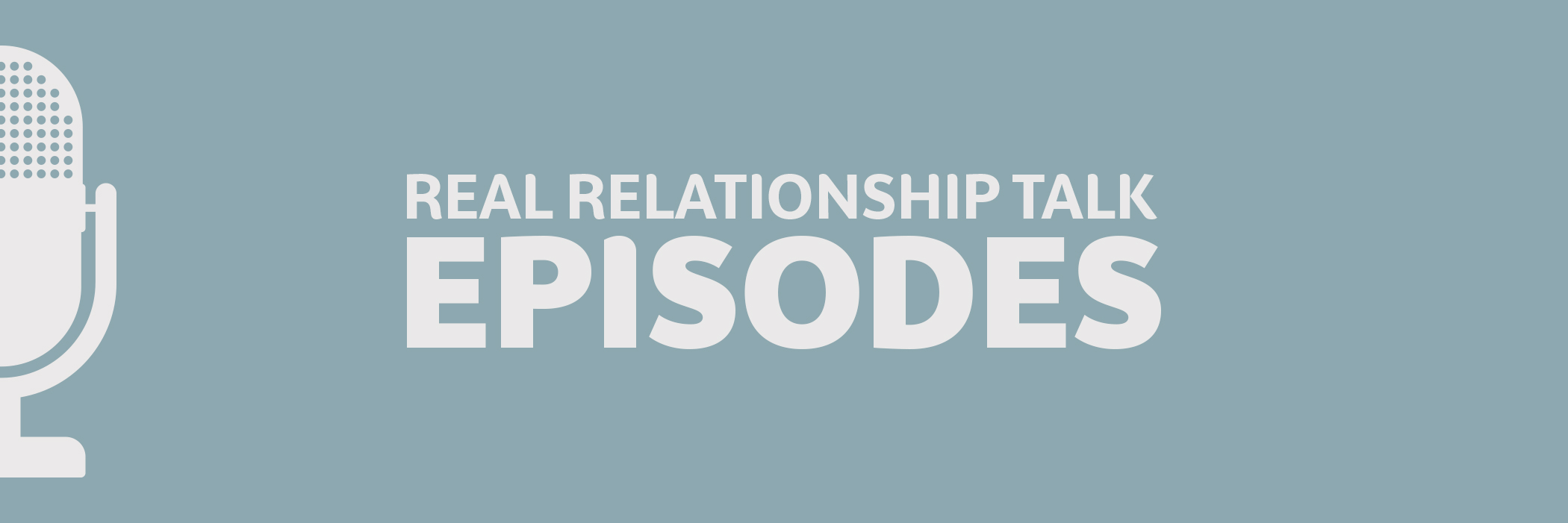Forgiving What You Can’t Forget Pt. 2
We’re discussing part two of forgiving what you can’t forget and continuing to talk about the fourfold path to forgiveness. These references come from Desmond and Mpho Tutu’s book The Book on Forgiving. It’s an incredible book; so well written. When I read this book, it was like a really kind, sweet, older gentleman, uncle, grandpa, that kind of person, who was just, loves you through his words. That’s the best way that I can describe it. It’s such a compassionate, gentle book, but with powerful truths.
Step 2 – Name the Hurt
The next step in the fourfold path to forgiveness is naming the hurt. It’s one thing for you to tell the story. For example, this thing happened to me, my husband was unfaithful, my wife depleted our bank account, whatever the situation is. But it’s another thing for you to then name the hurt for you to actually get real about what was lost. What did you lose when that thing happened? Get real specific about that. I’ve had quite a few things happen in my life that have caused me grief, and I’ve just kind of moved on. Now, that’s not to say that I haven’t grieved at all, but if I’m honest, I probably skipped some steps because I don’t like to feel sad. I don’t like feeling sorrow. I don’t like to think about loss. So to really be honest and real with myself about the fact that I really lost something there takes a lot of work. It takes a lot of honesty.
It takes a lot of vulnerability to just sit with that and to realize that some of the things that you lost, you can never get back. If you were, God forbid, sexually assaulted as a child, you lost your innocence, and you won’t be able to get that back. Now, that does not mean that you’re damaged goods. It doesn’t mean that your life is over and you’re somehow always going to be walking around with a scarlet A on your forehead. Absolutely not. But it does mean that you have to acknowledge that something was lost. So a part of naming the hurt is super important because it allows you to stop pretending or minimizing what happened. It’s one thing to, again, be general, I was hurt, I was betrayed, I was let down. It’s another thing to say, this is the hurt. I lost my confidence, I lost my security, I lost the closeness that I felt with that person. I lost my safety, I lost my savings. Whatever it might be, whatever was lost. It’s important that you’re able to name that and not just the tangible things, but the Nontangibles. That’s super important that we’re able to do that. Be specific about what it is that you lost.
Good Grief
There’s another book, and I’ll link to this in the show notes of this podcast. It’s called Good Grief by Granger Westburg. I read this book back in 2008 after my best friend passed away from breast cancer, and I’ve talked about this before on the show. I’ve told you just now that I’m not the greatest at dealing with grief. So I had to start seeing a grief counselor because I could not move on. Now, obviously, you’re dealing with a very significant loss, like people expect you to grieve for a while, right? But this was different. It wasn’t like I was in denial. I knew that she had died, but it really affected me in ways that I did not know what to do with. And so I started seeing a grief counselor. And that was one of the best decisions that I ever did because I think had I not started seeing that grief counselor, I probably would have just masked it under some religious jargon, like, “Oh, she’s in glory, bless the Lord.” That’s not what we need to do when we are going through loss and pain. We don’t need to mask it in some religious ideology.
ALSO LISTEN TO EP. 47: GRIEVING WITH HOPE
Step 3 – Granting Forgiveness
Step three is granting forgiveness. Now, I say this a lot, and I’m going to say it again, that forgiveness is both a choice and a process. You are not always going to feel like forgiving. And forgiveness is not just something as easy as just like, I forgive you. Okay, let’s move on. It starts off as a choice, but then you have to work it out as a process. These four steps that I’m giving you today is the process, or a process. So when I tell you that you need to grant forgiveness, it is a choice. You have to get to a point where you realize that when you withhold forgiveness from someone, you’re truly only hurting yourself in the long run.
Scientific studies have shown what unforgiveness does to the human body. Our bodies were not meant to hold on to unforgiveness. Your body was not meant to hold on to unforgiveness. You were not created to hold that much pain, to absorb that much trauma unhealed. So when you choose not to forgive, you’re choosing to stay stuck in your trauma and in your shame, and in your pain. I tweeted this years ago. It’s not my original tweet, but “Holding on to unforgiveness is like drinking poison, expecting the other person to die.” Some of the people that we are not forgiving have gone on about their lives, and they are not thinking about you at all. They’re not thinking about what they did. They’re not thinking about your hurt. They’re not thinking about anything. They are living their best life, and you’re the one stuck in the trauma. How do you get out of it? Well, you choose to forgive them.
Forgiveness is also not something that they earn. Forgiveness is a gift. They don’t have to ever ask you for an apology. I know that’s hard to hear because we want that. We need that. It’s like, wait a minute, you hurt me. You need to apologize. And the truth is, in a perfect world, absolutely that would work. But not everybody’s going to apologize. Maybe they don’t think that what they did was wrong. Maybe they’re a jerk. So maybe that person has died and they’ll never be able to acknowledge what they did. They’ll never be able to apologize. And this is why forgiveness is not predicated on someone asking for an apology. Forgiveness is simply a choice that you make. It’s what you choose to do. I choose to forgive you, even if you’re unworthy. Even if you never ask for my forgiveness. Even if you don’t think you did anything wrong. This is hard. You all easier said than done. I get it. I get it. But when you choose to forgive, you release yourself. Yeah, you release that person, but you really release yourself. You release yourself from them having to pay you back for whatever they did. Forgiveness is a gift. And I think one of the things that really helps us to forgive others is realizing that we have been forgiven.
When we realize that we’re humans, and I know that sounds so oversimplified, like everyone’s human, but truthfully, we have done things to others that we didn’t intend to do. We have hurt other people. We have caused people pain. And sometimes we meant to and sometimes we didn’t. So when we’re able to get in touch with that side of ourselves, with our humanity, then it gives us grace for other people. It gives us compassion for other people. Even when they hurt us, it gives us empathy for other people.
Forgiving Keeps Your Heart Tender
Maybe you need to forgive yourself. Maybe you’ve done something that is just so horrible and you’ve not forgiven yourself. It’s time for you to put yourself in the forgiveness box. It’s time for you to give yourself some grace, some compassion, some empathy. And that is what happens when we choose to forgive. We set ourselves free. We set the other person free. Ephesians 4:32, one of my favorite scriptures, says, “Be kind one to another, tender-hearted forgiving one another, even as God, for Christ’s sakes, has forgiven you.” Think about that. Tenderhearted. When you forgive, you keep your heart tender. You see when you choose to hold on to unforgiveness, it makes your heart hard and calloused.
And you wonder why you can’t love. You wonder why you can’t bond. You wonder why there’s a wall up between you and other people. It’s because when you hold on to unforgiveness, it hardens you. It embitters you. But when you’re able to forgive, you have a tender heart. You keep your heart soft and pliable and flexible. Maybe you think but then people are going to hurt you again. Maybe they will. But I’d rather have a tender heart that’s open to love and that’s open to accepting people and living with others with all of their weaknesses, all of their flaws, all of their insecurities, and mine vs being this hardened, tough person who’s trying to protect myself from all the hurts in the world. Because guess what, friend? You can live like that all you want. And people are still going to figure out a way to hurt you. So you may as well live with a tender heart.
Step 4 – Renew or Release the Relationship
Step four is to renew or release the relationship. This is an important conversation here because there is a difference between forgiveness and reconciliation. There are some relationships that are not going to be able to be reconciled. Like I said earlier, there might be people in your life who have died. You can’t be reconciled with them. There might be people in your life who are completely unsafe, and I’ve had to do that with some people. I will offer forgiveness, but we will not have a relationship. I’m not going to be bitter. I’m not going to egg your house. I’m not going to pray for your demise, but we will not be reconciled, and that is okay. You want to use those situations sparsely. You don’t want that to be your M.O. for everybody. You don’t want that to be how you treat people. But the truth is, there are some relationships that can be renewed. In Thrive Relationship Coaching, we talk about how to actually restore your relationships, but then even with that, I understand that there are going to be some relationships that are not going to be able to be restored.
There are some relationships that aren’t going to be able to be restored, but there are many relationships that can be. So how do you know the difference? How do I know if this relationship can be restored or if I need to be able to release it? Repentance? Is that person truly repentant? Are they willing to make repairs? If they’re not willing to make repairs and if they’re not repentant, well, then that leaves you with your answer.
To Forget or Not Forget?
Yes, there are times that you can wipe the slate clean, when have chosen to forgive. It’s then that you need to start over and wipe the slate clean. This is what it means to “keep no record of wrongs,” like it says in 1 Corinthians 13. This does not mean that love allows you to just be taken advantage of or that love never brings up wrongs. It said, keeps no record, meaning that you’re not always throwing in the face something that your spouse or whoever did to you. So when you decide your relationship can be repaired, renewed, or restored, it’s time to wipe the slate clean. Next, you do what the Bible teaches in Philippians 3: “forget what lies behind and you press forward to what lies ahead.”
Now, the title of this episode is Forgiving What You Can’t Forget. So am I contradicting myself? No. And neither is the word of God when it says forgetting what lies behind. God knows that we’re human beings and we’re not going to technically forget. But it means that you no longer focus on that thing. That thing is in your rearview mirror. So just like you driving down the street and you see some houses and some fields and some cars. When you pass those things, those things are in your past, they’re done. You’re probably not going to keep staring in your rearview mirror because then guess what? You’ll miss everything that’s in front of you. That’s how healthy relationships work. Once you forgive, now it’s behind you. That doesn’t mean that you’ll never think about it. That doesn’t mean that you won’t even sometimes reach back in the past to help other people with your story as I said earlier. But it does mean that you’re no longer harping on that thing. You’re no longer focusing on it. It’s not tripping you up anymore. You’re choosing to let the past be the past, and you’re choosing to press ahead to what lies ahead in the future. And if you’re not able to do that, then that relationship is not going to be restored or repaired.
Release the Hurt
So this brings us to our final point here, which is forgiveness is about releasing. It’s about releasing the hurt. So just like we named the hurt, now it’s about releasing the hurt. Just like you confronted the person, now it’s about releasing the person. Just like you had to tell your story, now it’s about releasing that story so that you can now tell a different story.
God has used our story to bless many, many marriages so that they could know that there is truly nothing that you will go through in your marriage that God can’t fix and heal so long as you’re willing to do the work. And this is why we end every episode by saying that a good relationship is not one that works. A good relationship is one where you put in the work. You’ve got to put in the work. There’s no magic wand fairy dust that God’s doing for some people and not for others. That’s not how it works. If you’re willing to do the work, if you’re willing to go through this process of forgiveness that we’ve talked about, anything can work.
If you’re ready to do the work of restoring your relationship, schedule your discovery call with me at http://danache.com/getstarted.
Links Mentioned in this Episode
Episode 149: Forgiving What You Can’t Forget – Pt. 1
Episode 116: Love Keeps No Record of Wrongs – with Dr. J. Calvin Tibbs
SUBSCRIBE | SHARE | RATE | COMMENT
To ensure you never miss an episode, be sure to subscribe on Apple Podcasts, Google Play, Spotify, Stitcher, iHeart Radio, or wherever you listen to podcasts. Remember, sharing is caring! So, share these episodes with your friends and family via email or social media.
See omnystudio.com/listener for privacy information.



0 Comments